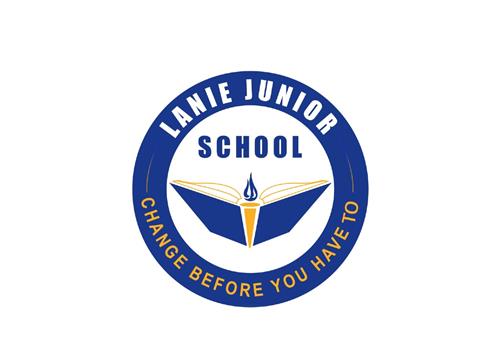Water and Sanitation Initiatives
Rotary Club members understand that, water is essential for a wide range of human activities, including drinking, cooking, bathing, and irrigation, and the lack of clean water is linked to preventable health problems such as dehydration, diarrhea, bacterial or parasitic infection, typhoid, and a long list of other gastrointestinal disorders. Communities that rely on contaminated water live with wide-spread illnesses in the population that adversely affect school attendance of the children, markedly decrease productivity of the adults, and contribute to increased mortality levels.
Aim
- Household access to safe water
- Sanitation and hygiene
- Gender - reduced burden of long distance access points
- Retention of children in school and reduced child burden
Achievements
- Drilling boreholes
- Workshops on safe water and sanitation best practices
- Hand washing campaigns (ROCK)
- Water harvesting from roof tops
- Water filtration – biosand water filters
- Provision of water to the community of Nanvunano, Iganga GG#
- Provision of Clean Water through Boreholes for Schools - GG#1416730.
Implementation of this global grant started in March 2016 in collaboration with four US Rotary clubs (Debuque IA; Minnetonka; Coronado, CA; and San Diego, CA), and with support from Quench and Connect. The total funding for the grant was USD 40,250.00
Project Progress status
The project is 98% completed with monitoring and evaluation, and branding required for two schools; Onwards and Upwards Secondary School, Wakiso District and Lakeside S.S, Masaka District.
The following activities were carried out; established water user committees in the four schools, constructed four boreholes - one for each school. The benefiting schools included;
- Onwards and Upwards Secondary School – Wakiso District
- Modern Secondary School Ocoko – Arua District
- Unity College Ngetta, Lira District
- Lakeside Secondary School – Masaka District, and
- Heroes Secondary School– Rakai District was given an enhanced Iron Removal Filter. Through establishing water user committees and providing them with adequate training, the sustainability of the boreholes was secured and are running very effectively.
- Provision of Water for Schools in Uganda 2017-18: GG#1863169.
The objective is to reduce disease, teach hygiene and sanitation practices, and to improve the appeal of the school to students and the surrounding community. It is a collaboration between the Rotary club of Debuque IA; and the Rotary Club of Kampala Central with a Global Grant funding of $41,420. The benefiting schools include:
- Namagabi Secondary School located 67 kilometers north of Kampala in Namagabi village, Ntenjeru North County, Kayunga District.
- New Generation Secondary School – Lira District located in Adyel division, Lira municipality, Kamdini Road in the northern district of Lira
- Otumbari Secondary School – Arua District located in Azati Parish, Odupi sub-county, Terego East Constituency, in Arua District in the northwestern region of Uganda near the border with South Sudan. It is located about 40Km from the town of Arua.
- Bujuuko High School – Wakiso District is a private secondary school with an enrollment of 480. It is located on the Mityana Road 17 kilometers from Kampala city, near the Bujuuko trading center in Lukwanga Parish.
We are all aware that access to drinking water means that the source is less than 1km away from its place of use and that it is possible to reliably obtain at least 20 litres per member of a household or student per day. Evidently, students in all the schools above have a major impediment in as far as access to drinking water is concerned, having to trek long distances in excess of 1km for water. The dry spells in the Northern region of Uganda make matters even worse with the drying up of the available sources.
Typhoid and TB diseases are attributed to lack of access to safe drinking water and basic sanitation, which increases the vulnerability of the students. The risk of the girls is evidently even higher.
Therefore, the need for clean sources of water in the schools above cannot be over emphasized.
For improved study concentration and better performances, the students must have access to clean water with reduced time of access to the sources; this will not only improve their academic performance but also reduce greatly the disease prevalence (water borne diseases) and therefore improved, and tremendous changes in their health conditions.
The following activities will be carried out: establishment of water user committees in the four schools, construction of four borehole wells, one at each of the schools
- In addition to the above Global grants, the Rotary club of Kampala Central has been involved in other interventions to ensure that our communities get access to clean portable water for domestic use. This has been mainly in Lukwanga Parish, Wakiso District where the Club established an RCC and conducted a needs assessment covering all six areas of focus.
The water interventions have been through provision of one borehole well every Rotary Year in each of the villages of Ntinda, Gimbo, Muyenje and Luggi, all in Lukwanga Parish. This started in the Rotary year 2014/2015 with great support from Elbeltoft Rotary Club in Denmark, which provides funding to the tune of $10,000 every rotary year.
- In 2013/14, Safe Water Saves Lives (SASALI) – D9200 DDF: Rotary Uganda presidents 2013/4 – Water harvesting at Gimbo Primary School. In addition to this, the Club also provided rainwater harvesting facilities through provision of a 5,000ltr water tank to Good Hope Primary School in Lukwanga and Biosand water filters to ensure that over 450 children who go to this school (including 45 orphans) do not drink unsafe contaminated water. This was done through the Safe Water Saves Lives (SASALI) Project, which was done by the Rotary Club of Kampala Central in Partnership with the Rotaract Club of Kampala Central (The ROCK) and the Lukwanga Community Corp.
Interested in being a sponsor?
Download the website sponsorship guide
Download the website sponsorship guide





